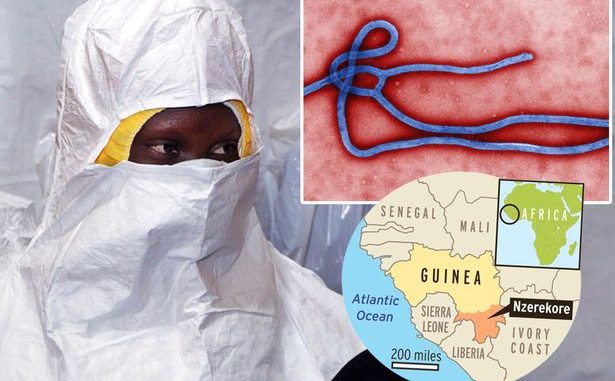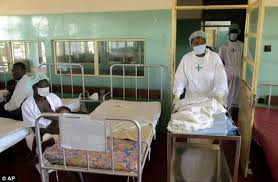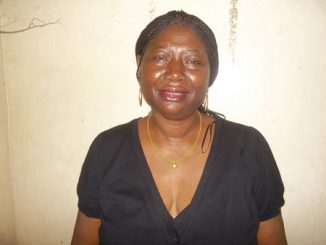
The hopes that Nigeria’s Ebola outbreak could be quickly stamped out have evaporated. The World Health Organization (WHO) this afternoonissued its first detailed report of the spread of the virus in Port Harcourt, Nigeria’s oil hub. Last week, authorities announced that a doctor there had died of the disease, after secretly treating a diplomat who had been infected in Lagos by a traveler from Liberia.
The doctor had close contact with family, friends, and health care workers during his illness, but he did not disclose his previous exposure to the virus. His infection wasn’t confirmed until 5 days after his death. Experts are now following hundreds of the doctor’s contacts, 60 of which had “high-risk or very high-risk exposure,” WHO says.
The diplomat had been instructed to stay in Lagos in quarantine. Instead he flew to Port Harcourt, where he was treated—in a hotel room—by the doctor from 1 to 3 August. The diplomat survived and returned to Lagos, presenting himself again to health authorities, who confirmed he was no longer was infected. He did not tell them that he had sought treatment in Port Harcourt.
The doctor who treated him became ill on 11 August. He continued treating patients at his private clinic for 2 days, operating on at least two of them. Between 13 and 16 August, he was ill enough that he stayed home, but, according to the WHO report, he received multiple visitors who came to celebrate the birth of a baby. On 16 August, he was hospitalized. He did not tell doctors there that he had been exposed to Ebola.
The WHO report is grim: “During his 6 day period of hospitalization, he was attended by the majority of the hospital’s health care staff,” it says, and members of his church community visited and performed a healing ritual that apparently involved laying on of hands. “On 21 August, he was taken to an ultrasound clinic, where 2 physicians performed an abdominal scan. He died the next day.”
It was not until 27 August that tests confirmed he was infected with Ebola.
His wife (who is also a doctor) and another patient at the hospital where he sought treatment are also infected. Twenty-one trained teams are monitoring more than 200 contacts, and a 26-bed isolation facility is set up. WHO says two decontamination teams and a burial team “are equipped and operational.”
The diplomat, associated with the Economic Community of West African States, may face manslaughter charges, according to Nigerian press reports.
*The Ebola Files: Given the current Ebola outbreak, unprecedented in terms of number of people killed and rapid geographic spread, Science and Science Translational Medicine have made a collection of research and news articles on the viral disease freely available to researchers and the general public.
*Update, 3 September, 5:09 p.m.: This article has been updated to clarify the number of monitoring teams at work.






Leave a Reply